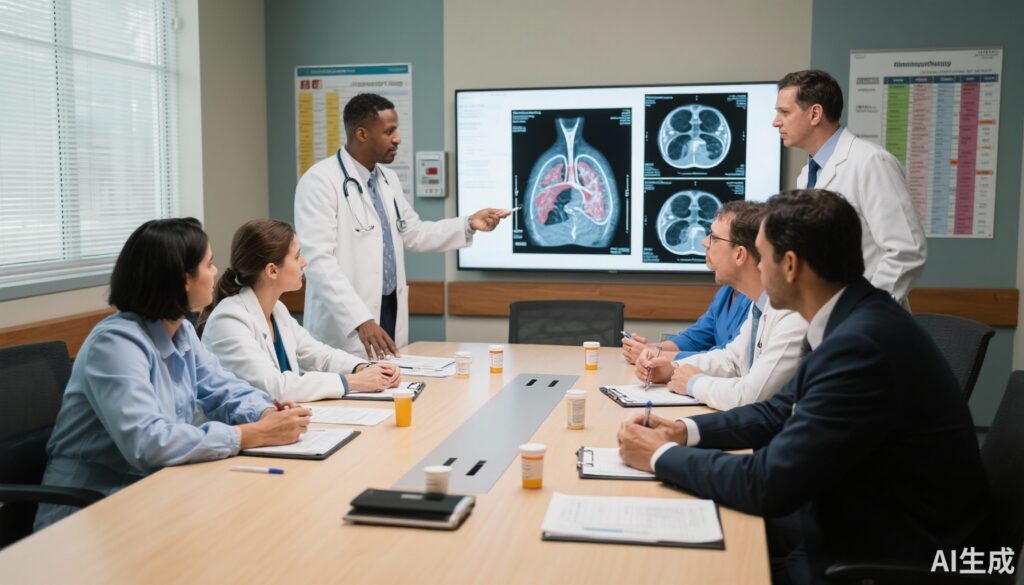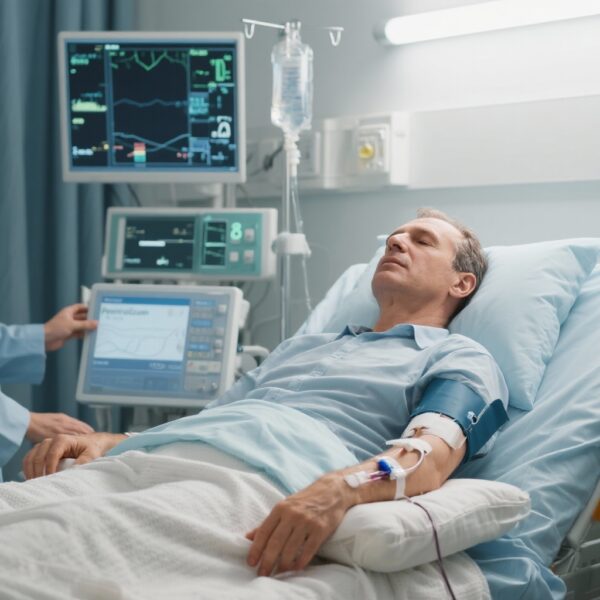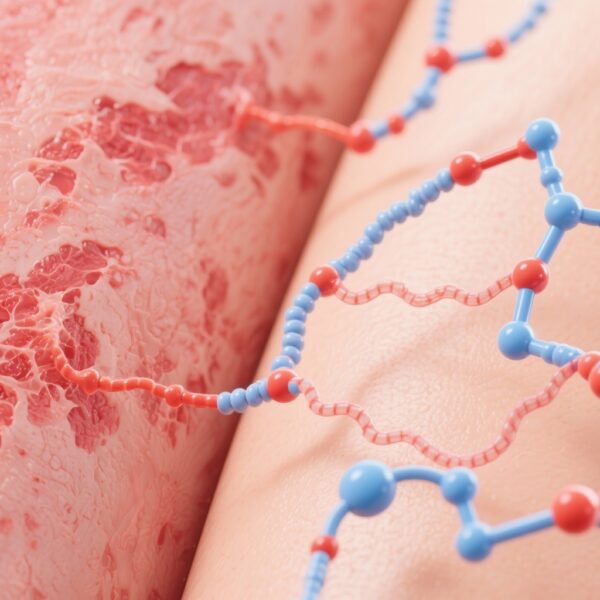Highlight
- The addition of adjuvant immunotherapy after neoadjuvant chemoimmunotherapy and surgery did not significantly improve event-free or overall survival in resectable stage III NSCLC.
- Pathological complete response status stratification confirmed no survival benefit from adjuvant immunotherapy in either responder or non-responder groups.
- Exploratory analyses indicate that three cycles of neoadjuvant immunotherapy may yield better outcomes than 2 or 4 cycles.
- Real-world data suggest that adjuvant immunotherapy might be unnecessary in this clinical context, potentially reducing treatment burden and toxicity.
Study Background and Disease Burden
Non–small cell lung cancer (NSCLC) comprises approximately 85% of lung cancer cases worldwide and remains a leading cause of cancer mortality. Stage III NSCLC is a heterogeneous group with locoregional disease that is often challenging to manage due to the potential for both local recurrence and distant metastasis. Multimodal therapy, including neoadjuvant chemotherapy, immunotherapy, and surgery, is increasingly employed to improve long-term outcomes.
Neoadjuvant chemoimmunotherapy has emerged as an effective strategy to downstage tumors and increase pathological complete response (pCR) rates prior to surgery. However, the role of additional adjuvant immunotherapy after surgery remains unclear. While adjuvant immune checkpoint inhibitors have demonstrated survival benefit in some trials for resected NSCLC, their incremental value after successful neoadjuvant chemoimmunotherapy is uncertain and may expose patients to unnecessary toxicity and costs.
Therefore, defining whether adjuvant immunotherapy contributes to improved survival in this context addresses a critical unmet clinical need and could optimize therapeutic sequencing for patients with stage III NSCLC.
Study Design
This retrospective, two-center study enrolled 184 patients with resectable stage III NSCLC treated between two hospitals. Eligible patients received neoadjuvant chemoimmunotherapy followed by radical surgical resection. Postoperative adjuvant immunotherapy was administered to 105 patients, while 79 patients did not receive adjuvant immunotherapy.
Key endpoints included event-free survival (EFS) and overall survival (OS), calculated from the start of neoadjuvant treatment. To address confounding factors inherent to retrospective studies, the investigators applied both one-to-one propensity score matching (PSM) and inverse probability of treatment weighting (IPTW).
Subgroup analyses stratified patients by pathological complete response (pCR) status after neoadjuvant treatment. Additionally, an exploratory analysis compared outcomes by number of neoadjuvant immunotherapy cycles (2, 3, or 4).
Key Findings
After PSM adjustment, no statistically significant difference was observed between patients receiving adjuvant immunotherapy and those who did not in terms of either EFS or OS. Specifically, the 2-year EFS rates were 62.3% with adjuvant immunotherapy versus 66.1% without (P = 0.653). The 2-year OS rates were similarly comparable, at 92.7% versus 89.6% (P = 0.196).
Subgroup analyses stratified by pCR status indicated that adjuvant immunotherapy did not confer survival benefits in either patients who achieved pCR or those who did not. These findings were consistent after IPTW adjustment, reinforcing the robustness of the results despite potential selection bias.
The exploratory evaluation of neoadjuvant immunotherapy cycle number suggested that three cycles might be the optimal balance. Patients receiving three cycles had numerically higher pCR (40.8%) and 2-year EFS (75.0%) compared with two cycles (pCR 30.6%; EFS 54.5%) or four cycles (pCR 36.8%; EFS 63.2%). Although these differences did not reach statistical significance, the trend supports further prospective study.
These findings imply that escalating treatment intensity with postoperative immunotherapy may not improve outcomes beyond neoadjuvant chemoimmunotherapy and surgery alone.
Expert Commentary
The study by Guan et al. provides insightful real-world evidence into sequencing immunotherapy for stage III NSCLC. The lack of added survival benefit from adjuvant immunotherapy challenges the assumption that prolonged immunomodulation invariably improves prognosis in this setting.
Several factors may explain these results. Neoadjuvant chemoimmunotherapy might induce durable immune memory and tumor eradication, diminishing incremental benefit from adjuvant treatment. Additionally, the cumulative immune-related adverse events and treatment burden could detract from quality of life without clear survival gain.
Importantly, the retrospective nature and potential for unmeasured confounding underscore the need for prospective confirmatory trials. The heterogeneous stage III population and variation in tumor biology, immune microenvironment, and PD-L1 status may also influence responsiveness.
Current guidelines acknowledge neoadjuvant chemoimmunotherapy plus surgery as standard for resectable stage III NSCLC but do not mandate adjuvant immunotherapy. This study supports personalized approaches, potentially sparing some patients unnecessary exposure to adjuvant agents.
Conclusion
In resectable stage III NSCLC, the addition of adjuvant immunotherapy after neoadjuvant chemoimmunotherapy and surgery does not appear to improve event-free or overall survival. Subgroup analyses by pathological response status corroborate these findings. Furthermore, three cycles of neoadjuvant immunotherapy may represent an optimal regimen, balancing efficacy and treatment burden.
These real-world findings advocate for reconsideration of adjuvant immunotherapy use post-neoadjuvant chemoimmunotherapy in stage III NSCLC, pending prospective validation. Future research should focus on identifying predictive biomarkers to individualize immunotherapy sequencing and refining neoadjuvant strategies to maximize long-term cure rates while minimizing toxicity.
References
Guan S, Wang H, Chen Z, Guo F, Yi G, Du X, Yan J, Tian C. Is adjuvant immunotherapy necessary after neoadjuvant chemoimmunotherapy in patients with resectable stage III NSCLC? A two-center real-world study. Cancer Immunol Immunother. 2025 Jul 21;74(8):273. doi: 10.1007/s00262-025-04130-z. PMID: 40690022; PMCID: PMC12279636.
Osmani L, Askin F, Gabrielson E, Li QK. Current WHO guidelines and the critical role of immunohistochemical biomarkers in diagnosis of lung cancer. J Clin Pathol. 2018;71(1):79-89. doi:10.1136/jclinpath-2017-204460.
Forde PM, Chaft JE, Smith KN, et al. Neoadjuvant PD-1 Blockade in Resectable Lung Cancer. N Engl J Med. 2018;378(21):1976-1986. doi:10.1056/NEJMoa1716078.
Provencio M, Nadal E, Insa A, et al. Neoadjuvant Chemotherapy and Nivolumab in Resectable Non-Small-Cell Lung Cancer (NADIM): An Open-label, Multicentre, Single-arm, Phase 2 Trial. Lancet Oncol. 2020;21(11):1413-1422. doi:10.1016/S1470-2045(20)30414-0.
Hellmann MD, Chaft JE, William WN Jr, et al. Pathological response after neoadjuvant chemotherapy in resectable stage II-III non-small cell lung cancers: proposal for the use of major pathological response as a surrogate endpoint. Lancet Oncol. 2014;15(1):e42-e50. doi:10.1016/S1470-2045(13)70588-1.


